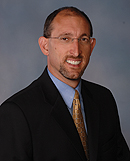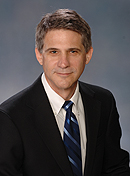Auburn University Faculty Awards
Alumni Professors
Twenty-five, five-year non-renewable Alumni Professorships are sponsored by the Auburn Alumni Association. The Alumni Writer-in-Residence, a creative writer from the English faculty, is the only ongoing appointment. The Vice President for Academic Affairs/Provost calls for nominations from department heads through deans. The awards are presented on the basis of research, publishing and teaching.
Susan Brinson
Professor - Communications and Journalism
College of Liberal Arts
Susan Brinson researches two aspects of the history of radio and television broadcasting in the United States. The first focuses on the politics of broadcast regulation, particularly Federal Communications Commission decisions between 1940-1965. A current project analyzes the FCC's national security/defense activities during World War II and the Cold War, which is a follow-up to a previous project on the impact of anti-Communist politics on FCC decision making during the same time period. This research extends our understanding of the influence of politics on government regulation of broadcasting, whether through decisions about who may own a station or the content that may be broadcast, to the ways in which broadcasting is used to protect political ideologies. She also researches the role of women in broadcasting during the 1940s-1950s. We know about the celebrities (Lucille Ball, Gracie Allen, etc.), but we know far less about the women who worked as government regulators, corporate executives, technicians/engineers, writers, producers, directors, and programmers. Thus, a current project explores women's employment in the radio industry during WWII.
Steve R. Duke
Associate Professor - Chemical Engineering
Samuel Ginn College of Engineering

Steve Duke came to Auburn in 1996. He teaches courses in fluid mechanics, transport phenomena, and introductory engineering. His research includes fluid flow visualization, polymer particle processing, bubble and drop dynamics, and alternative fuels development. He directs Auburn’s National Science Foundation Research Experiences for Undergraduates Program in Micro/Nano-Structured Materials, Therapeutics, and Devices. He is faculty adviser for the student chapter of the American Institute of Chemical Engineers and serves on its national Career and Education Operating Council. He is also on the University Core Curriculum Oversight Committee. He works with Alabama Southern Community College as part of the National Science Foundation Advanced Technology Education National Network for Pulp and Paper Technology Training. Duke received the Birdsong Teaching Award in 2000, the Walker Teaching Award in 2005, the Pumphrey Teaching Award in 2006, and the Student Government Association Outstanding Faculty Award in 2006. He was a Camp War Eagle faculty honoree in 2007. Duke’s bachelor of chemical engineering is from Georgia Tech and his doctorate is from the University of Illinois. He worked as an engineer with Exxon for several years. He and his wife, Robin (a chemical engineer), live in Auburn with their children, Kate age 14, and Bram age 12.
M. Daniel Givens
Associate Professor - Pathobiology
College of Veterinary Medicine

Daniel Givens completed undergraduate studies at Western Kentucky University and obtained a doctorate of veterinary medicine degree from Auburn University in 1994 after two years of clinical practice in central Kentucky. Givens completed a clinical residency that culminated in board certification in the American College of Theriogenologists. He then achieved board certification in the American College of Veterinary Microbiologists (virology subspecialty) while performing post-doctoral research funded by the National Institute of Health. Since 2000, Givens' efforts in applied research regarding infectious diseases that affect reproduction of cattle have resulted in 40 peer-reviewed manuscripts, four book chapters, and two international patents. Simultaneously, for his didactic lectures in the basic science classroom as well as clinical instruction in the large animal teaching hospital, Givens has received the Norden Distinguished Teacher Award in 2004 and a Student Government Association Outstanding Teacher Award in 2007. Givens passionately enjoys the opportunity to learn, apply, and teach students about determinants that impact animal health and disease.
John Saye
Professor - Curriculum and Teaching
College of Education

A faculty member at Auburn for 14 years, John Saye serves as program coordinator for the Social Science Education program. Saye also directs the Persistent Issues in History Network, a national history and civics reform project, and the Social Science Inquiry Research Collaborative, a national group of scholars examining the effects of inquiry-based social studies teaching on secondary school students' learning. His teaching, research, and outreach are united by a focus on preparing and supporting social studies teachers who have the skills and commitment to promote civic competency in middle and high school students. His scholarship emphasizes field-based studies that apply theory to the real world of working classrooms with the goal of developing wise practices and workable curriculum for improving civic and history instruction. He has received substantial support from the National Endowment for the Humanities and the Fund for the Improvement of Post-Secondary Education that has allowed him to apply his research to the development of curriculum and professional training resources that support novice and veteran teachers in nurturing civic reasoning in secondary school students. Saye received his bachelor of art in political science in 1975, his master of art in social science education in 1979, and his doctorate of education in 1995, all from the University of Georgia. He has been married to his wife, Donna, for 30 years and has one daughter, Maggie.
Joey Shaw
Professor - Agronomy and Soils
College of Agriculture

Joey Shaw is a native of Virginia, where he received a bachelor of science degree from James Madison University in 1988. After working for a soil science consulting firm, he received a master of science degree from the University of Maryland in 1993 and a doctorate in soil classification (pedology) from the University of Georgia in 1998. He joined Auburn's faculty in 1998 as an assistant professor, and was promoted to associate professor in 2003 and professor in 2007. His responsibilities at Auburn have included instruction of soil classification, soil judging, soil mineralogy, and special topics in geospatial applications, as well as assisting with the Natural Resource Conservation Service. He is also an Alabama Professional Soil Classifier and Certified Crop Advisor and lectures at Alabama Crop Management seminars and workshops. He serves as the Alabama Agriculture Experiment Station liaison to the National Cooperative Soil Survey as well as on the advisory council of the ALPSC and an advisory group to the director of Soil Survey. He was elected chair of the Soil Science Society of America Soil Mineralogy Division and has served as associate editor of two society publications. His research has focused on basic pedology and application of geospatial technologies in soil science and agronomy. In particular, his program has worked on characterization of dynamic soil properties, soil hydromorphic features, and highly weathered minerals.


